I did the longest/fastest ride yet with the new batteries - 23 miles at about 55 MPH.
The red light never came on, I used 23AH and never dropped below 128V under load. The Vectrix gauge showed 4 bars left.
However- when I plugged in it didn't start charging until I pressed the reset button.
Curious - is there a situation where reset is required when the red light doesn't come on?
It works! And you're right Matt - it comes on and turns back off depending on the load. On the way home (another 28 miles - I made a mistake on the previous post - it was 28, not 23 miles) - I pushed it a bit harder and I saw the light come on - then it turned back off when I eased up on the throttle.
But the ride was great - I never lost power down to the last bar - and I rode the speed limit instead of limping along to save a few electrons... Yay Li-ion!
Do you have a graph of Voltage/time/current for the lithium batteries that you can post here.
I need this information in order to re-arrange the charger programme for these batteries. I am hoping that I can persuade the old NiMH charger to do the job and I believe that it may be possible.
Really nice to see your input and help on this forum.
Thanks MERoller, this is the knid of thing I am looking for. This particular graph is for high current charging.
The Vectrix charger is capable of only 10 to 12 amperes so we are talking about a charge rate of maybe 0.2C, therefore the ideal graph would show currents of 0.2C, 0.1C, 0.05C or that order of magnitude.
I have just located an interesting graph on the following link:--
From the graph you have posted and the one from this site, I think that I have a fair idea of how to go about a suitable charging pattern.
Thank you all for your invaluable help.
Congrats on the conversion! Though I've got to dock you for the one-handed riding technique (gotta watch those reflections ;-) ), I'm actually a bit surprised to spot some similarities in our garages: 1 eco-friendly car; check! 1 not-so eco-friendly truck; check! 1 petrol-powered motorcycle; check! 1 electro-powered Vectrix; check! Bunch of gardening tools and other crap on the wall; check! Heck, you even sound a bit like me.. Freaky...
All these vids are really going to come in handy when it comes time for my Vectrix to face the Li-Ion upgrade; she's just barely managing my 17 mile commute at the moment and, though I might be in for trying Laird's reprogram, I'm thinking a complete swap out for a 40Ah pack might be in order...
I love riding electric - for me it was an easy decision to upgrade to the Li-ion so I can keep riding my Vectrix. I just turned over 12,000 miles and now it runs much better than when I bought it. I also just put two new tires on it. It should last me a long time to come.
My wife drives the Pruis - I ride electric (when I can). The gas bike is for the long rides and the truck is for the occasional run to the hardware store. I would have an electric car (or truck) if I had the choice. It's so nice to be able to just pull into the garage and plug-in.
sorry,I wasn`t here in this forum since many weeks, my Vectrix is running very well with NimH but I still wanted to write something about LiFePo4 Cells in the Vectrix.
Surry for my english, I'm from Germany.
I think it makes no difference with view on maximum charging or minimum discharging Voltages what brand of cells you buy.
Everytime the same limits at LIFePo4. If you discharge cells should not drop in any case below ~ 2V - 2.5V and this is the very importand point to watch via BMS and keep your battery alive and in good condition for a long time.
The 2V or 2.5V are the minimum limit to make shure that during discharge the cell voltage can not be reversed suddenly than this is the main problem.
At 2,5V a cell is already empty and Voltage can be very quickly reversed if discharging of the pack gos only on for a very little time.
Some overvoltage during charging is not as much important if it stays between 3.5V and 4 V per cell. This are already experiences from me and many other users with LiFePO4 .
So the charger must not switch off at the end of charging, its voltage must only be limited to a maximum Voltage depending on Number of serial cells. The rest than is done by balancers of each cell. In case of the Vectrix charger and 42 LiFePo4 cells the voltage at the end of charging fits in every case to the cells in the way that it cannot be to much Voltage . The Charger must not be switched off. Nice to have it but not necessary at all.
This is the usual way if you charge LIfePO4. Thousands of LIFEPo4 chargers are limited to a maximum voltage at the end of charge and don't switch off.
What the BMS should do with first priority is to hide someone going on driving ist Vectrix when only one cell has reached undervoltage limits already.
If one single cell drops down earlyer than the rest and gets reverse voltage from the pack it will be damaged and this damage can not be reversed .One cell always will faster drop down at the end of SOC. Happend to me already with A123 cells but not at the Vectrix.
My NimH cells work still very well today at my Vectrix and thats's only the reason why I didn'change to LIFEPO4 up to today. Never change a good running system.
If I change some day cells I plan to take the A123 prismatic cells. I have very good experiences already with A123 . Cells are a bit more expensive than other brands but I thinh that are the best cells you can get today.
sorry,I wasn`t here in this forum since many weeks, my Vectrix is running very well with NimH but I still wanted to write something about LiFePo4 Cells in the Vectrix.
Sorry for my english, I'm from Germany.
I think it makes no difference with view on maximum charging or minimum discharging Voltages what brand of cells you buy.
Everytime the same limits are given at LiFePo4. If you discharge cells they should not drop in any case below ~ 2V - 2.5V and this is the very important point to watch via BMS and keep your battery alive and in good condition for a long time.
The 2V or 2.5V are the minimum limit to make shure that during discharge the cell voltage can not be reversed suddenly than this is the main problem.
At 2,5V a cell is already empty and Voltage can be very quickly reversed if discharging of the pack gos only on for a very little time.
Some overvoltage during charging is not as much important if it stays between 3.5V and 4 V per cell. This are already experiences from me and many other users with LiFePO4 .
So the charger must not switch off at the end of charging, its voltage must only be limited to a maximum Voltage depending on Number of serial switched cells. The rest than is done by balancers of each cell. In case of the Vectrix charger and 42 LiFePo4 cells the voltage at the end of charging fits in every case to the cells in the way that it cannot be to much Voltage for the pack . The Charger must not be switched off. Nice to have it but not necessary at all.
This is the usual way if you charge LiFePo4. Thousands of LiFePo4 chargers are limited to a maximum voltage at the end of charge and don't switch off.
What the BMS should do with first priority is to hide someone going on driving its Vectrix when only one cell has reached undervoltage limits already.
If one single cell drops down earlyer than the rest and gets reverse voltage from the pack it will be damaged and this damage can not be reversed .One cell always will faster drop down at the end of SOC. Happend to me already with A123 cells but not at the Vectrix.
My NiMH cells work still very well today at my Vectrix and thats's the only reason why I didn'exchange to LiFePo4 up to today. Never change a good running system.
If I change some day the cells I plan to take the A123 prismatic cells. I have very good experiences already with A123 . Cells are a bit more expensive than other brands but in my opinion that are the best cells you can get today.
I didn't buy the new prismatic cells up to today. My experiences with A123 systems are with the older 26650 cells with 2.2Ah in parallel Configuration . I bought a lot of them 3 years ago for a project in the way that I ordered 36V packs for Dewalt tools in US and disassemble them. In each pack are 10 cells. And they are working fine up to today.Only five cells in p configuration where reversed in polarity for a short time during discharging and lost about 20% of capacity permanent. The chines BMS didn't protecht them. It was planed to cut the discharge but didn't. This cells are very robust and secure and can deliver very high current. They have a very low Ri with nano technology and don't get hot during discharge or charging with even high currents.
A123 produces in China. But there are some fakes offered which don't meet the original A123 specs.
Never the less A123 original cells are already a lot cheeper than in the first time and can be ordered via several dealers.
I didn't buy the new prismatic cells up to today. My experiences with A123 systems are with the older 26650 cells with 2.2Ah in parallel Configuration . I bought a lot of them 3 years ago for a project in the way that I ordered 36V packs for Dewalt tools in US and disassemble them. In each pack are 10 cells. And they are working fine up to today.Only five cells in p configuration where reversed in polarity for a short time during discharging and lost about 20% of capacity permanent. The chines BMS didn't protecht them. It was planed to cut the discharge but didn't. This cells are very robust and secure and can deliver very high current. They have a very low Ri with nano technology and don't get hot during discharge or charging with even high currents.
A123 produces in China. But there are some fakes offered which don't meet the original A123 specs.
Never the less A123 original cells are already a lot cheeper than in the first time and can be ordered via several dealers.
Mavizen is the only legitimate retail seller of a123 20ah prisimatic cells, and sells them for $50USD each. This is nice because in the past there was no retail outlet for a123 cells, so we always had to use illegitimate cells - overstock, B-stock, disassembled cells, cells that 'fell off the truck, etc.' However, $50/cell is too pricy for me, when there are plenty of illegitimate places selling decent cells. For example, cell_man on endless-sphere has A-stock cells, and builds/sells packs of them.
I bought a whole bunch of 16ah and 20ah cells 2 years ago, before mavizen came along, and been using them to great success. I planned ond upgrading my Vectrix with 100ah of a123 prisimatics, until I realized I had a 164v/50ah pack of Headways sitting around that I could use instead. I would not consider using M1 cells in a vectrix pack, just way too many individual cells to fiddle with IMO.
I don't know if one can trust this seller.
There are some confuse things in his ebay offer I dom't understand.
First why is he selling without tabs,I kwow this cells only with tabs, second thing is he writes somewhere "discharge power 3C continious 10C peak(10sec). Would be ok for other brands but that is much to low refering to the a123 specs.
Maybe its because of the missing tabs.
Yes, maybe, the tabs....
But with this price we can have A123 of same price of Winston, Calb, Geb or Sinoply and better than CHL. And all know A123 is A123...always.
I have see A123 with 0v and after they continue good!
And for Vectrix, maybe size of A123 for the box is better, no?
I had a minor problem with my 50AH converted bike this year, but was able to fix it and keep going - thought I'd share:
Since I had to cut the top of the battery box completely off to squeeze the 50AH cells inside - the bottom of the seat was nearly in direct contact with the battery terminals. I placed a layer of styrofoam between the seat and battery pack, and some spacers underneath the rear seat bolts to raise it a bit (as described previously), but after riding for one and half years I had trouble charging one day and took the seat off to take a look.
The layer of styrofoam showed evidence that the seat was still pressing directly on the batteries - this is the view of the bottom of the styrofoam layer:
I found a broken wire (a small red one - part of the BMS) - and soldered it back into place.
To try and prevent this from happening again I placed some more spacers beneath the rear plate that supports the seat:
Then I cut another piece of plastic and placed it across the rear of the top of the battery box, where the seat rests:
All of the raising of the seat created a small gap between the seat and body:
Hi,
I was looking through this thread and noted that this is not a Li-Ion conversion. It is a LiFePo4 conversion using CALB cells from China. LiFePo4 is Lithium Iron Phosphate which is different to Lithium Ion. The Tesla Roadster / Model S or Nissan Leaf use Li-Ion. The weight of a LiFePo4 conversion is 35% heavier. The conversion uses larger cells which do not fit the battery compartment. With Li-Ion you can fit 90 Amp/Hr within the Vectrix battery compartment. No modifications are required and the top can fit back on the battery box.
Hi,
I was looking through this thread and noted that this is not a Li-Ion conversion. It is a LiFePo4 conversion using CALB cells from China. LiFePo4 is Lithium Iron Phosphate which is different to Lithium Ion. The Tesla Roadster / Model S or Nissan Leaf use Li-Ion. The weight of a LiFePo4 conversion is 35% heavier. The conversion uses larger cells which do not fit the battery compartment. With Li-Ion you can fit 90 Amp/Hr within the Vectrix battery compartment. No modifications are required and the top can fit back on the battery box.
Welcome to the hobby. While not completely accurate, you will encounter a lot of people coloquially using the term Lithium-Ion to refer both to LiCo and LifePO4, so now would be a good time to get used to it. Note that the Leaf uses Lithium Manganese, not lithium cobalt like the Tesla.
The assorted flavors of Lithium Cobalt such as are used in the Tesla offer greater energy density and lower internal resistance, but can experience thermal runaway - uncontrolled self-heating until they burn up, and take the rest of the pack (and your vehicle) with them. Thermal runaway can be initiated by overcharge, overdischarge, penetration, an internal fault, etc etc, a phenomena best known for the exploding laptop batteries made of first generation LiCo.
To mitigate thermal runaway, Tesla has an extensive BMS system that isolates and monitors each of those individual cells, and IIRC can take a failed cell's string out of service. I'd expect a home brew version of this system would make the pack larger and heavier than a LiFePO4 pack of equivalent capacity.
Further, if discussing the comparative mass of the bare cells, remember there are different grades of powder used in both types of cells; tesla uses some in the best and lightest, so it is specious to compare them to low grade LifePO4 cells like ping, or mid-grade LifePO4 cells like CALB/headways. The most appropriate comparison would be to high grade LifePO4 like a123 20ah pouch cells, which only weigh 15% more.
I appolgise for the mistake regarding Nissan Leaf. They have also quoted their battery as Li-Ion. To answer the question of what range after 2 years? http://www.evalbum.com/4465
This bike has now done 32,000 Km and I will test it again some time.
The cells used in this bike are Panasonic CGR18650CG. The datasheet is below. http://master-instruments.com.au/products/59576/CGR18650CG.html
There are 60 Amp/Hr and 90 Amp/Hr versions on the road.
I hadn't heard of a Thermoscud, so I did a google search:
I bet it's nice and warm!
Where I live in California - it usually only gets that cold a few days each winter - my winter riding gear is usually adequate.
If I had planned better I could have mounted the BMS alarm light next to the Cycle Analyst, but it should work OK for me where I mounted it.
I did the longest/fastest ride yet with the new batteries - 23 miles at about 55 MPH.
The red light never came on, I used 23AH and never dropped below 128V under load. The Vectrix gauge showed 4 bars left.
However- when I plugged in it didn't start charging until I pressed the reset button.
Curious - is there a situation where reset is required when the red light doesn't come on?
I may have been wrong about the red light,
It may only be on while a cell module is reporting a cell voltage is too high or too low
It's a feature I have never actually used....
Matt
Daily Ride:
2007 Vectrix, modified with 42 x Thundersky 60Ah in July 2010. Done 194'000km
It works! And you're right Matt - it comes on and turns back off depending on the load. On the way home (another 28 miles - I made a mistake on the previous post - it was 28, not 23 miles) - I pushed it a bit harder and I saw the light come on - then it turned back off when I eased up on the throttle.
But the ride was great - I never lost power down to the last bar - and I rode the speed limit instead of limping along to save a few electrons... Yay Li-ion!
Hello CHL Lithium Battery,
Do you have a graph of Voltage/time/current for the lithium batteries that you can post here.
I need this information in order to re-arrange the charger programme for these batteries. I am hoping that I can persuade the old NiMH charger to do the job and I believe that it may be possible.
Really nice to see your input and help on this forum.
Many thanks,
The Laird.
This is from Joey's earlier post (#29 on this thread):
This is from the CHL website:
Hi Folks,
I'm obviously having a bad day.
The graph I need is of voltage against time for different currents WHILST CHARGING.
Why didn't I say so in the earlier post? Stupidity?
Apologies and thanks to all who tried to help. Dare I ask you to try again?
The Laird
I am confused too,could you send a sample curve to my mail chlbattery [at] gmail.com ?
This may be quicker, charging curves taken from GBS 40Ah LiFePO4 cell documentation, copyright remains with them for this one:
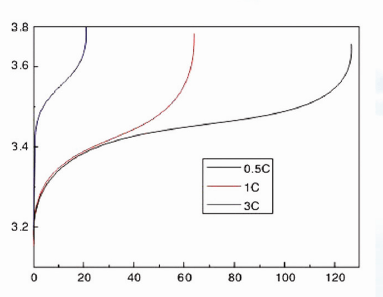
My rides:
2017 Zero S ZF6.5 11kW, erider Thunder 5kW
Hi Folks,
Thanks MERoller, this is the knid of thing I am looking for. This particular graph is for high current charging.
The Vectrix charger is capable of only 10 to 12 amperes so we are talking about a charge rate of maybe 0.2C, therefore the ideal graph would show currents of 0.2C, 0.1C, 0.05C or that order of magnitude.
I have just located an interesting graph on the following link:--
http://batteryuniversity.com/learn/article/charging_lithium_ion_batteries
From the graph you have posted and the one from this site, I think that I have a fair idea of how to go about a suitable charging pattern.
Thank you all for your invaluable help.
Best wishes to you all, have fun.
The Laird
A brief video:
http://youtu.be/axTFWQF4XS4
Congrats on the conversion! Though I've got to dock you for the one-handed riding technique (gotta watch those reflections ;-) ), I'm actually a bit surprised to spot some similarities in our garages: 1 eco-friendly car; check! 1 not-so eco-friendly truck; check! 1 petrol-powered motorcycle; check! 1 electro-powered Vectrix; check! Bunch of gardening tools and other crap on the wall; check! Heck, you even sound a bit like me.. Freaky...
All these vids are really going to come in handy when it comes time for my Vectrix to face the Li-Ion upgrade; she's just barely managing my 17 mile commute at the moment and, though I might be in for trying Laird's reprogram, I'm thinking a complete swap out for a 40Ah pack might be in order...
I love riding electric - for me it was an easy decision to upgrade to the Li-ion so I can keep riding my Vectrix. I just turned over 12,000 miles and now it runs much better than when I bought it. I also just put two new tires on it. It should last me a long time to come.
My wife drives the Pruis - I ride electric (when I can). The gas bike is for the long rides and the truck is for the occasional run to the hardware store. I would have an electric car (or truck) if I had the choice. It's so nice to be able to just pull into the garage and plug-in.
Hello,
sorry,I wasn`t here in this forum since many weeks, my Vectrix is running very well with NimH but I still wanted to write something about LiFePo4 Cells in the Vectrix.
Surry for my english, I'm from Germany.
I think it makes no difference with view on maximum charging or minimum discharging Voltages what brand of cells you buy.
Everytime the same limits at LIFePo4. If you discharge cells should not drop in any case below ~ 2V - 2.5V and this is the very importand point to watch via BMS and keep your battery alive and in good condition for a long time.
The 2V or 2.5V are the minimum limit to make shure that during discharge the cell voltage can not be reversed suddenly than this is the main problem.
At 2,5V a cell is already empty and Voltage can be very quickly reversed if discharging of the pack gos only on for a very little time.
Some overvoltage during charging is not as much important if it stays between 3.5V and 4 V per cell. This are already experiences from me and many other users with LiFePO4 .
So the charger must not switch off at the end of charging, its voltage must only be limited to a maximum Voltage depending on Number of serial cells. The rest than is done by balancers of each cell. In case of the Vectrix charger and 42 LiFePo4 cells the voltage at the end of charging fits in every case to the cells in the way that it cannot be to much Voltage . The Charger must not be switched off. Nice to have it but not necessary at all.
This is the usual way if you charge LIfePO4. Thousands of LIFEPo4 chargers are limited to a maximum voltage at the end of charge and don't switch off.
What the BMS should do with first priority is to hide someone going on driving ist Vectrix when only one cell has reached undervoltage limits already.
If one single cell drops down earlyer than the rest and gets reverse voltage from the pack it will be damaged and this damage can not be reversed .One cell always will faster drop down at the end of SOC. Happend to me already with A123 cells but not at the Vectrix.
My NimH cells work still very well today at my Vectrix and thats's only the reason why I didn'change to LIFEPO4 up to today. Never change a good running system.
If I change some day cells I plan to take the A123 prismatic cells. I have very good experiences already with A123 . Cells are a bit more expensive than other brands but I thinh that are the best cells you can get today.
regards to the forum
Klaus
srry,now is a double postung tried a little update ,but the system doubled it .
and where did you buy this A123 prismatic?
I didn't buy the new prismatic cells up to today. My experiences with A123 systems are with the older 26650 cells with 2.2Ah in parallel Configuration . I bought a lot of them 3 years ago for a project in the way that I ordered 36V packs for Dewalt tools in US and disassemble them. In each pack are 10 cells. And they are working fine up to today.Only five cells in p configuration where reversed in polarity for a short time during discharging and lost about 20% of capacity permanent. The chines BMS didn't protecht them. It was planed to cut the discharge but didn't. This cells are very robust and secure and can deliver very high current. They have a very low Ri with nano technology and don't get hot during discharge or charging with even high currents.
A123 produces in China. But there are some fakes offered which don't meet the original A123 specs.
Never the less A123 original cells are already a lot cheeper than in the first time and can be ordered via several dealers.
Klaus
Who?
Here in Germany I can order cells for ~ €50.
http://shop.lipopower.de/A123-Systems-AMP20M1HD-A-20Ah-Folienzelle
Shoulf that be not a better price in USA ?
I found spontaneous a dealer at ebay.com
http://www.ebay.com/sch/i.html?_from=R40&_trksid=p5197.m570.l1313&_nkw=AMP20M1HD&_sacat=See-All-Categories
Mavizen is the only legitimate retail seller of a123 20ah prisimatic cells, and sells them for $50USD each. This is nice because in the past there was no retail outlet for a123 cells, so we always had to use illegitimate cells - overstock, B-stock, disassembled cells, cells that 'fell off the truck, etc.' However, $50/cell is too pricy for me, when there are plenty of illegitimate places selling decent cells. For example, cell_man on endless-sphere has A-stock cells, and builds/sells packs of them.
I bought a whole bunch of 16ah and 20ah cells 2 years ago, before mavizen came along, and been using them to great success. I planned ond upgrading my Vectrix with 100ah of a123 prisimatics, until I realized I had a 164v/50ah pack of Headways sitting around that I could use instead. I would not consider using M1 cells in a vectrix pack, just way too many individual cells to fiddle with IMO.
Here is a 30-page thread on endless-sphere discussing sources for the a123 cells:
http://www.endless-sphere.com/forums/viewtopic.php?f=14&t=26072
a123rc has them for $37:
http://www.endless-sphere.com/forums/viewtopic.php?f=14&t=35365
Another thread claiming bad cells, but we later figured out this guy was looking for free cells.
http://www.endless-sphere.com/forums/viewtopic.php?f=14&t=33939
My thread on spot-welding the tabs - joining these cells can be an issue, since you can't just solder them together:
http://www.endless-sphere.com/forums/viewtopic.php?f=14&t=29959
My first experiences receiving and terminating the prisimatic cells:
http://www.endless-sphere.com/forums/viewtopic.php?f=6&t=12461&start=45#p239629
-JD
I have found also this:
http://www.ebay.com/itm/72P-A123-20ah-Batteries-/250927848349?pt=US_Batteries&hash=item3a6c771b9d#ht_9345wt_1139
23usd per cell....hum....strange
well,
I don't know if one can trust this seller.
There are some confuse things in his ebay offer I dom't understand.
First why is he selling without tabs,I kwow this cells only with tabs, second thing is he writes somewhere "discharge power 3C continious 10C peak(10sec). Would be ok for other brands but that is much to low refering to the a123 specs.
Maybe its because of the missing tabs.
regards
Klaus
As we know,quite a lot of A123 cell from china are 2nd hand cells disassamble from old power tool and compose into group.That's why so cheap.
Just be careful.
Yes, maybe, the tabs....
But with this price we can have A123 of same price of Winston, Calb, Geb or Sinoply and better than CHL. And all know A123 is A123...always.
I have see A123 with 0v and after they continue good!
And for Vectrix, maybe size of A123 for the box is better, no?
Two Years After and Still Riding!
I had a minor problem with my 50AH converted bike this year, but was able to fix it and keep going - thought I'd share:
Since I had to cut the top of the battery box completely off to squeeze the 50AH cells inside - the bottom of the seat was nearly in direct contact with the battery terminals. I placed a layer of styrofoam between the seat and battery pack, and some spacers underneath the rear seat bolts to raise it a bit (as described previously), but after riding for one and half years I had trouble charging one day and took the seat off to take a look.
The layer of styrofoam showed evidence that the seat was still pressing directly on the batteries - this is the view of the bottom of the styrofoam layer:
I found a broken wire (a small red one - part of the BMS) - and soldered it back into place.
To try and prevent this from happening again I placed some more spacers beneath the rear plate that supports the seat:
Then I cut another piece of plastic and placed it across the rear of the top of the battery box, where the seat rests:
All of the raising of the seat created a small gap between the seat and body:
But it's not really noticeable from a distance:
Happy Riding!
Hi,
I was looking through this thread and noted that this is not a Li-Ion conversion. It is a LiFePo4 conversion using CALB cells from China. LiFePo4 is Lithium Iron Phosphate which is different to Lithium Ion. The Tesla Roadster / Model S or Nissan Leaf use Li-Ion. The weight of a LiFePo4 conversion is 35% heavier. The conversion uses larger cells which do not fit the battery compartment. With Li-Ion you can fit 90 Amp/Hr within the Vectrix battery compartment. No modifications are required and the top can fit back on the battery box.
Welcome to the hobby. While not completely accurate, you will encounter a lot of people coloquially using the term Lithium-Ion to refer both to LiCo and LifePO4, so now would be a good time to get used to it. Note that the Leaf uses Lithium Manganese, not lithium cobalt like the Tesla.
The assorted flavors of Lithium Cobalt such as are used in the Tesla offer greater energy density and lower internal resistance, but can experience thermal runaway - uncontrolled self-heating until they burn up, and take the rest of the pack (and your vehicle) with them. Thermal runaway can be initiated by overcharge, overdischarge, penetration, an internal fault, etc etc, a phenomena best known for the exploding laptop batteries made of first generation LiCo.
To mitigate thermal runaway, Tesla has an extensive BMS system that isolates and monitors each of those individual cells, and IIRC can take a failed cell's string out of service. I'd expect a home brew version of this system would make the pack larger and heavier than a LiFePO4 pack of equivalent capacity.
Further, if discussing the comparative mass of the bare cells, remember there are different grades of powder used in both types of cells; tesla uses some in the best and lightest, so it is specious to compare them to low grade LifePO4 cells like ping, or mid-grade LifePO4 cells like CALB/headways. The most appropriate comparison would be to high grade LifePO4 like a123 20ah pouch cells, which only weigh 15% more.
This is our CHL lithium battery,not CALB battery,see http://visforvoltage.org/forum/10370-around-03m%CF%89-inner-resistancethe-best-lfp-lithium-battery-china
How many mileage after 2 years riding?
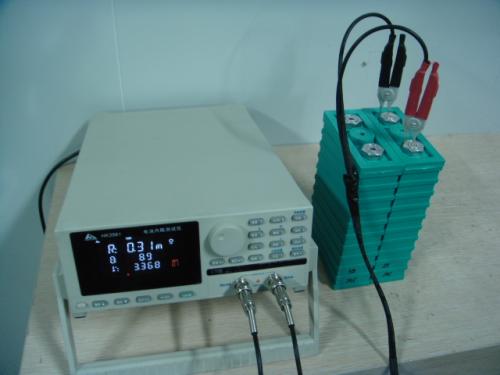

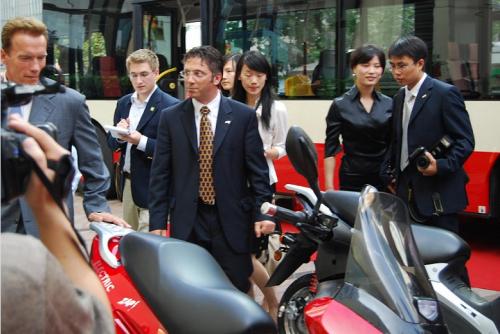
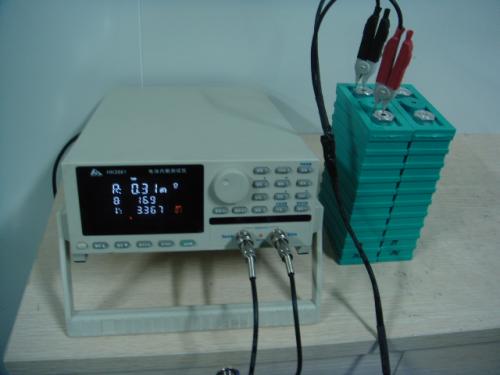
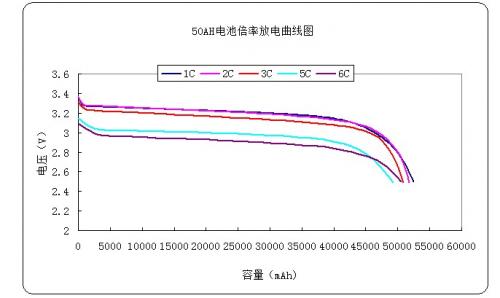
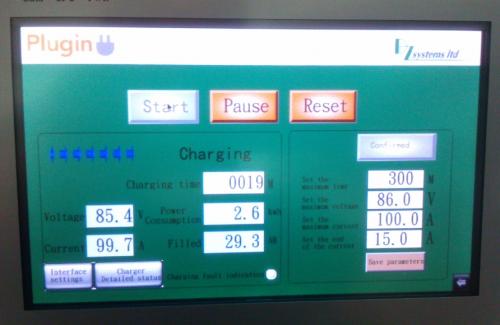
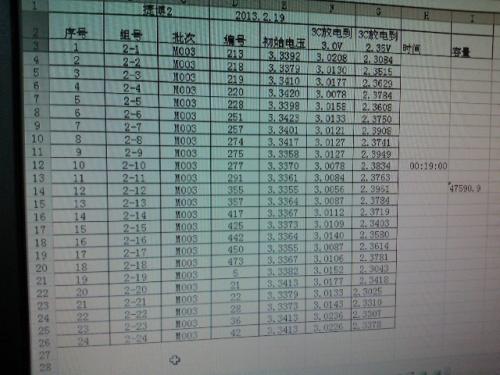
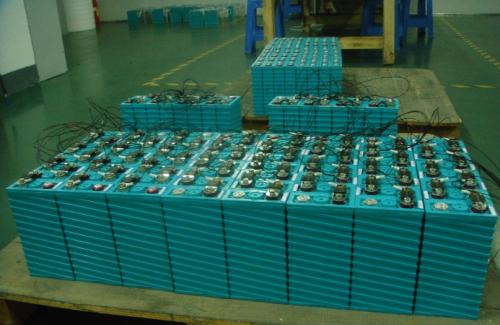
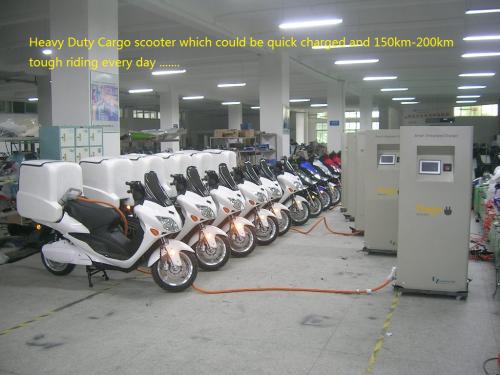
I appolgise for the mistake regarding Nissan Leaf. They have also quoted their battery as Li-Ion. To answer the question of what range after 2 years?
http://www.evalbum.com/4465
This bike has now done 32,000 Km and I will test it again some time.
The cells used in this bike are Panasonic CGR18650CG. The datasheet is below.
http://master-instruments.com.au/products/59576/CGR18650CG.html
There are 60 Amp/Hr and 90 Amp/Hr versions on the road.
With regard to battery fire in Teslas I know only of one. A Tesla model S hit a large piece of metal on the road which penetrated the stainless steel underbody and the battery pack.
http://www.engadget.com/2013/10/04/tesla-model-s-battery-fire-musk-response
Fires in electric vehicles are rare compared to gasoline vehicles.
http://www.youtube.com/watch?v=eRmgMHNud2o&feature=c4-overview-vl&list=PLB8A30D58E1AF9DB5
There has been a number of fires in the NiMh version of Vectrix. These batteries when worn out generate enough heat to start a fire.
http://visforvoltage.org/forum/12671-vectrix-caught-fire-less-2-mins-after-temperature-light-came
Pages